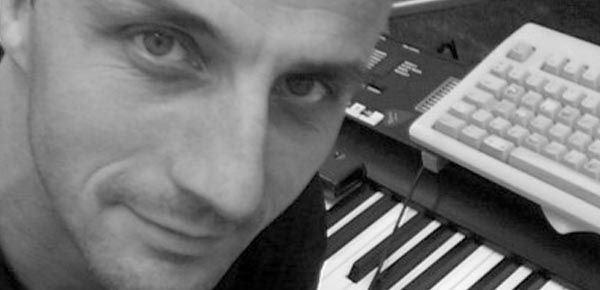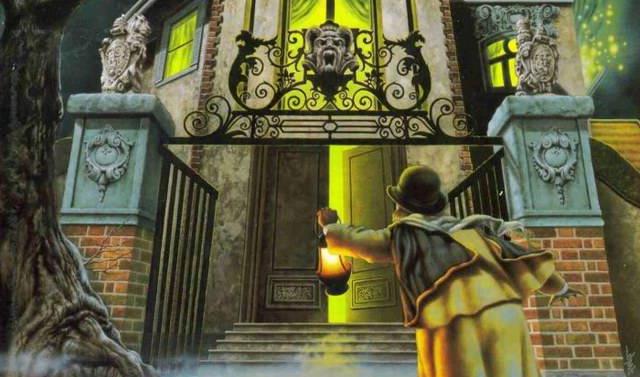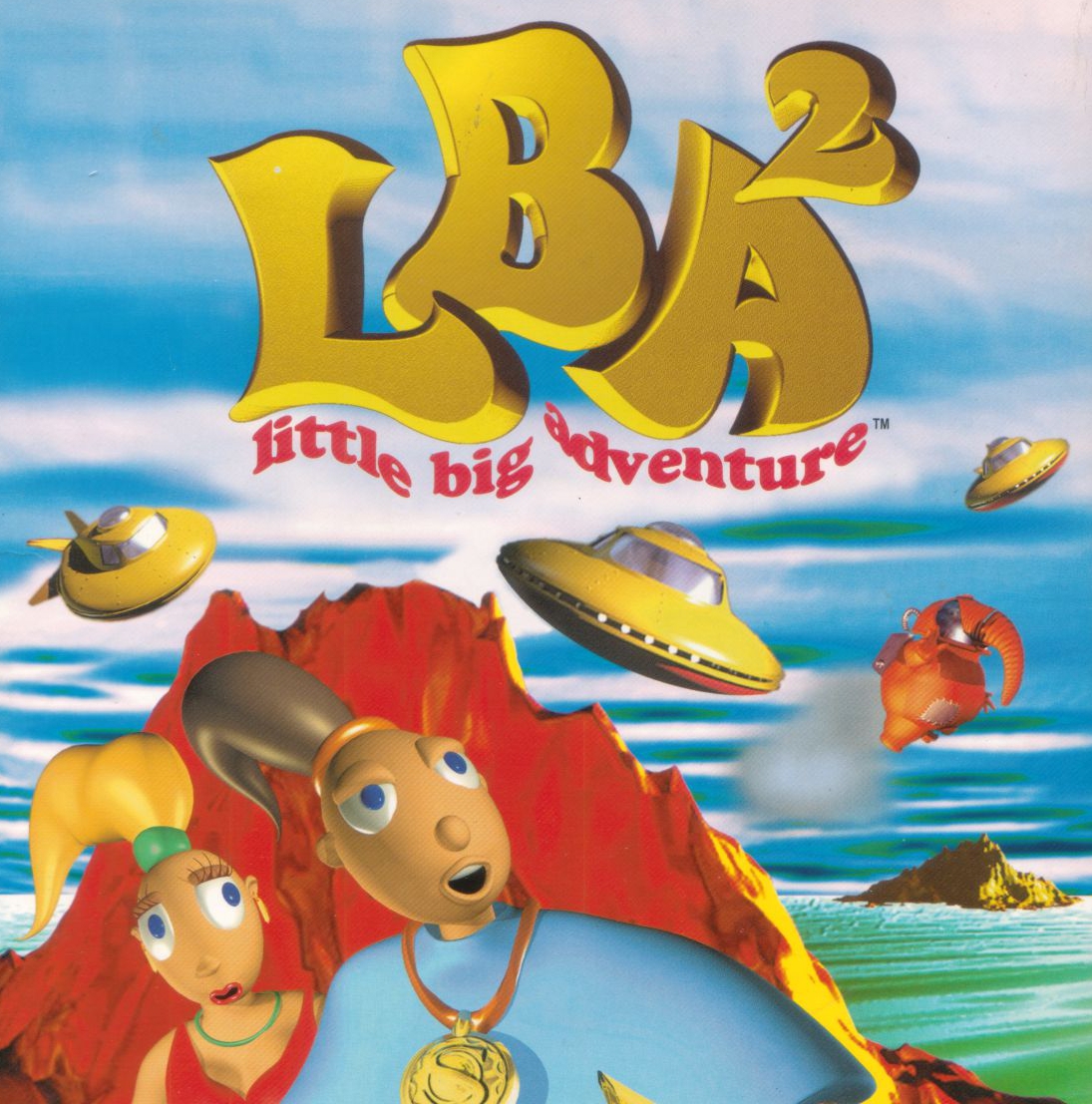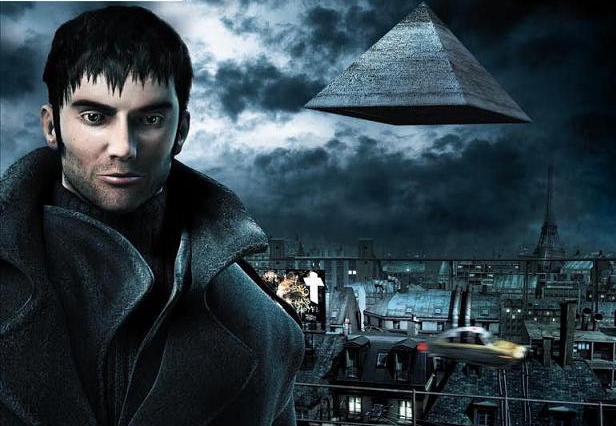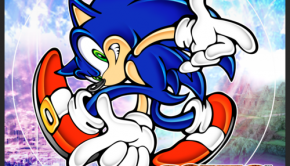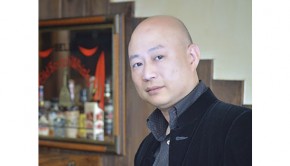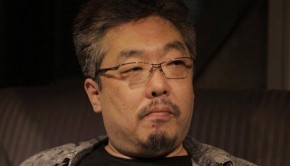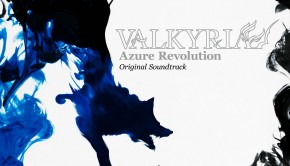Philippe Vachey Interview: Time for an Adventure
Originating from Lyon, France, Philippe Vachey has innovated with the composition, implementation, and integration of each of his video game scores. Among his most famed works include the original Alone in the Dark, the two Little Big Adventure titles, and the recently-released graphic adventure Nikopol, the soundtracks of which are now available through digital retailers.
In this interview, Vachey recalls his background and early experiences creating music for video games. He discusses the musical inspirations and technological challenges of creating scores such as Alone in the Dark, Little Big Adventure, and Time Commando, and how he was responsible for some of the first ever experiments in adaptive game audio. He also gives an update on his latest experiences, among them setting up a video game design school.
Interview Credits
Interview Subject: Philippe Vachey
Interviewer: Chris Greening
Editor: Chris Greening
Coordination: Chris Greening
Interview Content
Chris: Philippe Vachey, many thanks for taking the time to talk to us today. First of all, could you tell us about the experiences that led you to becoming a musician? What is your musical background, influences, and education?
Philippe Vachey: Around the age of 13, I started learning to play the guitar in a small music school around the corner from my house. That was my first experience with music; I just wanted to learn how to sing a song while strumming along on the guitar. A little after, I decided to “electrify” my guitar and purchased my first amp, before starting to jam with a few friends in a garage. That brings me to the early 80s, when I started a small rock’n roll band with a couple of crazy friends. We have a lot of fun: we performed a couple of bad and good gigs, between recording a tonne of demos. Looking back, I really enjoyed these times and learned a lot as a musician; we were really creative and experimented a lot with music. A bit after, I purchased my first computers and jumped into the world of digital music.
Today, when someone asks me about my musical background or about the lessons I took in counterpoint and harmony, it’s still kinda of weird for me to answer. After all, I have no training at all in music, apart from some self-teaching… There were also absolutely no musicians in my family.
My first musical influences are bands like Yes, King Crimson, and Genesis. Later, I discovered the Clash, Talking Heads, etc. In parallel, I also became fond of Stravinsky, Fauré, and Mahler, amongst many others. Along the way, I also listened to a lot of ethnic music, from every part of the world: a great source of inspiration regarding musical structures and colours. Well… I must admit, it’s quite a strange blend. But these are my musical foundations.
Chris: You worked extensively with Infogrames in the early 90s. What led you to join this company? Could you share your initial experiences working on Advantage Tennis and CDTV version of SimCity there?
Philippe Vachey: Actually, I didn’t join Infogrames per se. Rather, I was an external freelancer. A few friends of mine helped to create Infogrames, so it was easy for me to approach them. At the time, I was working for an IT company and decided to change my profession to become a composer. Tough beginnings! I purchased a couple of electronic devices (Atari computer, samplers, keyboard) and started to experiment with the gear, trying to transfer my live music inspirations to the cold world of computers. Interesting approach, and there was certainly a lot of trial-and-error involved…
My involvement with the video game industry began with a small role as a sound designer during the porting of SimCity for the CDTV platform. Not much to complete from what I can remember, but it was a good introduction for a newcomer. A bit later, I got the opportunity to create the music for Advantage Tennis (featuring a tennis tournament occurring across the world) for a Japanese platform called FM Towns. As this platform had a CD-ROM, it was possible to produce music in a conventional way: sequencing samplers and studio recordings. Technically speaking, there was nothing particularly different from normal music production. In any case, it was my first ever experience as a composer for the video game industry. Good memories!
Chris: One of the your best-known works is the soundtrack for the original Alone in the Dark. How did you develop the dissonant orchestral approach to this horror soundtrack? Released in MIDI and CD versions, the music for Alone in the Dark was ahead of its time technologically. What was your process for synthesising and integrating the music for this title?
Philippe Vachey: I was really motivated by the challenge to tailor a soundtrack for such an environment. When I began working on the title, we didn’t have many assets for the title: a couple of sketches, a few character designers, a plot synopsis, and the background for the H.P. Lovecraft universe. I wasn’t much inspired by horror film scores, mainly because I’m not fond of watching such movies. However, the loss of my father during the production process had probably a deep impact on my work. In a way, I think I transferred all the darkest emotions I felt at that moment to the music.
Integrating the music for Alone in the Dark was a bit more difficult than expected at the beginning. In fact, technologically speaking, there were not many solutions other than bouncing from one platform (standard midi/sampler) to another one (adlib editor). That meant there was a subtle but real gap between the original home-made version and the final PC version. I had to re-arrange almost everything, due to the audio card constraints, including the sound palette. That said, the PC version was a really good clarification exercise: I was obliged to keep only the essential, due to the huge limitation in the amount of polyphony and sound colours that could be produced.
On another hand, the CD version was a chance to release of couple ideas I’d been unable to produce for the floppy version: more music, more ambience, and a deeper mood (according to me…). Anyway I like both versions!
Chris: You went back into horror territory three more times in your career for Shadow of the Comet and the unreleased Agartha. How did you approach these titles compared to Alone in the Dark?
Philippe Vachey: For Shadow of the Comet, we started the production a little after Alone in the Dark’s release. The general mood of the project wasn’t that far apart (it featured the same line-up after all), but the story and the game mechanics were totally different. I kept the same approach for the music creation, and we used the same production workflow for the audio creation. I had fewer problems than for the previous production, simply because all the technical problems had been solved.
Agartha was another kind of adventure, both team- and development-wise. At that time, I was a full-time composer working for the No Cliché Studio, which was a developer for Sega. The core team of No Cliché was nevertheless the same as for Alone in the Dark, and the purpose was to create a survival horror game for the Sega Dreamcast. The development team worked hard to produce a highly sophisticated engine to animate a world covered by snow in east Europe and populated by zombies.
I started the music production just after coming back from a long journey in Nepal, where I found a kind of spiritual energy amidst all the snow. I started to gather sound colours, trying to give a special touch for this project. We also planned and finally developed a sort of internal sequencer inside the game engine to chain small pieces of music in order to follow the live action. Accordingly, I wrote the music in a special way, with the goal to permanently being able to reorder and chain together each segment and create adaptive transitions between the different layers. This is something very common today, but not that common at that time.
But in the end, we didn’t get the chance to complete the whole work and to try our new tools. Sega fired the whole team before the end of the production for marketing strategy reasons. I still have 40 minutes of music produced specially for this project in my drawer. Only a short trailer was ever released!
Chris: Your music for Time Commando is fascinating, given it spanned so many times and settings. Was this an enjoyable project to work on? How did you meet the challenge of composing music in so many different styles?
Philippe Vachey: It was honestly a really frustrating project for me… Facing a lot of technical constraints, i.e. mainly a CD device used for image streaming, I was unable to produce a fully-fledged score for a CD version. As a consequence, we only had one option: midi files played on PC sound cards. That meant no control at all on the final result: you never know which sound card is installed and what kind of result you’ll get! Even if the programming is correct, you can imagine the “surprise” on some exotic sound cards…
It was a kind of challenge to create music with a lot of different style with a really narrow palette of colours. We also eventually released two fully-fledged main themes that are only playable at certain moments during the game. I clearly haven’t forgotten how much I suffered during this production!
Chris: The Little Big Adventure scores are known for their dazzling orchestrations. Could you elaborate on what influenced this approach? Did you intend to pay homage to any classical composers specifically?
Philippe Vachey: The Little Big Adventure universe is rich and colourful even without my music, and it was a real delight to work on these productions. My approach was pretty simple. I considered the whole story, like a kind of opera libretto, and tried to illustrate all the different part of the games (such as places, energies, moods, and characters) in each music piece. As a composer, I think the best option is to try to find a door to enter into the story and to find a way to illustrate the emotions the player might encounter during their personal adventure all the way through the game. That is to say, music can be present and… absent. And when one succeeds, a third effect can be occur: when music meets images. A game is not a movie.
Because of the richness of this story, the multiplicity of actions, and the interactive possibilities, it was quite clear for me that I had to produce something constantly evolving, moving from one emotion to another one. That was my particular aim for this game. The plan was also to develop each track depending on your progress in the game. I wanted to introduce extracts of each long track at the beginning of each stage, then build from there. Coding-wise, I chose to bring in each theme one-by-one each theme while following the story; the longer you play the more you discover the music content. There’s always a limited amount of music that can featured during the length of a game, but the richer the content, the better the experience.
I also tried to give a unity to the whole music creation, in order to follow the game; my desire (I’ll say it’s a habit…) was that the tracks would still be enjoyed as music even on a stand-alone basis. The Little Big Adventure universe was rich enough to bring front many creative ideas, and as a composer I had a total blank page regarding the artistic approach. The musical influences were numerous; as I said before, my musical culture is very eclectic (pop, classical, etc…) I also got the chance to record this music in a big studio with talented people, and we shared our passion to create the best music we could we could.
Chris: You recently released your soundtracks to Little Big Adventure, Little Big Adventure 2, and Nikopol on iTunes. Could you tell us more about how you prepared these releases and what can we expect from Nikopol? Do you plan to one day release your other classic scores too, for example Shadow of the Comet and Time Commando?
Philippe Vachey: Nothing much more than releasing the right masters, with the right titles. Everyone is spreading data over the web, but most of the time they don’t take care. Now, everyone can get the proper version.
Although it’s a short score, the soundtrack for Nikopol: Secret of the Immortals is something I especially like. It’s a point and click game evolving in a steam punk universe, with a story deeply linked to the Enki Bilal cartoon (La Foire aux Immortels). At the early stage of the production, I produced a first track for the team just to give the vision of what I wanted to do: a blend of 70s/80s colours, plus a couple of big sequencers and some guitars. It seems everyone was OK with this proposition, and I was able to produce 20 minutes of music from there.
Chris: Looking back at all your projects, it’d been interesting to hear favourites. Which titles and pieces are you most proud of?
Philippe Vachey: I love “Song for Gabriel” (Little Big Adventure 2), a tiny piece from Alone in the Dark called “Walking in the Dark” (both the floppy and CD version), and many others in fact….
Chris: In recent years, you’ve been extensively involved in projects related to education both at home and abroad. Could you tell us more about these activities? Could you share your experiences in India creating a video game school?
Philippe Vachey: Since 2000, I’ve had the chance to join a couple of educational projects linked to the video game industry. I’ve been involved in different schools, where I’ve transferred my experiences and knowledge about sound design for games to students.
In May 2008, I got a last-minute call proposing the direction for the creation, launch, and implementation of a gaming school project in India, a premiere on this territory. Two months later, I was on location with a small team (also comprising an animator and designer) ready to fight and start a brand new school abroad. We had to create absolutely everything from scratch: a totally exhausting and crazy project, but I led this creation with passion. You can get some pictures about this adventure here. After three years we raised 15,000 square meters of academic buildings and created the whole content for this huge shell. Done! I think all of us, both on the Indian and French side, will remember these very special moments forever…
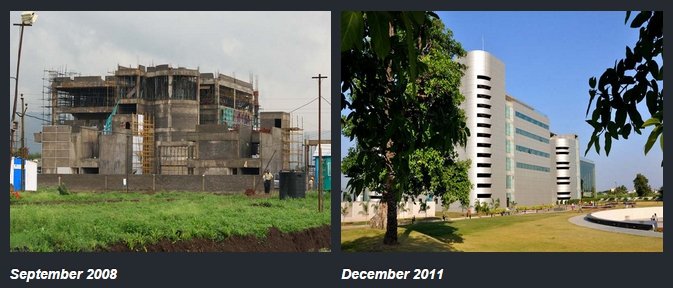
Chris: Many thanks for your time today, Philippe Vachey. Is there anything you’d like to say about your plans for the future? In addition, do you have any messages for readers around the world?
Philippe Vachey: For the future, I’d love to release an arranged version of my work featuring orchestrations, machine sounds, and guitars. I started a rework last year for a concert project, which unfortunately has been cancelled, and I keep these versions aside for the moment. I’ve still a couple of things to complete before finding the right way to produce such a release. Anyone? Other than that, nothing much to add. We’ll see what future holds! Thank you and see you around!
Posted on September 10, 2014 by Chris Greening. Last modified on September 10, 2014.

